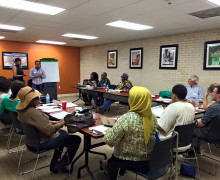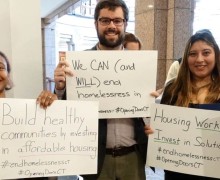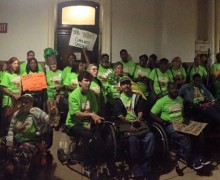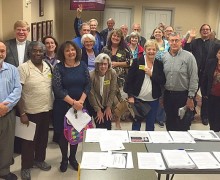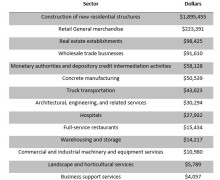Massachusetts Awards Record $50.3 million from Affordable Housing Trust Fund
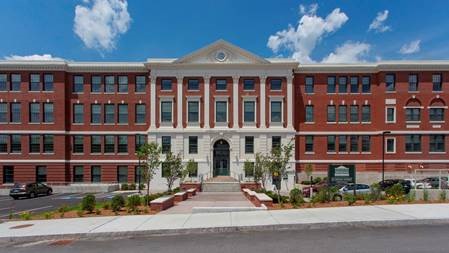
The Boott Cotton Mills in Lowell, Massachusetts was once at the epi-center of the Industrial Revolution in the United States. For the majority of the mill-workers, known as the Lowell Mill Girls, company owned housing was crowded and required the women to follow rules that restricted their ability to come and go, and limited behavior based on a sexist moral code. Thanks to an investment from the Massachusetts Affordable Housing Trust Fund (AHTF), the last undeveloped portion of the historic Boott Cotton Mills complex will be home to families, seniors, and young people entering the work force, living right in the heart of a community on the rebound. The project will create seventy-seven 1-, 2-, and 3-bedroom rental apartments, of which sixteen of must be affordable to households at or below 80% of AMI. In addition to the housing, the project includes 43,000 square feet of commercial/office space.
With the inclusion of AHTF funds, the Boott Mill West project was able to leverage New Market Tax Credits and State and Federal Historic Rehabilitation Tax Credits to help complete the project financing. Boott Mill West has a 50-year affordability restriction; the state anticipates that the rental units will be converted to condominiums and sold to households with the same income targeting as proposed for the rental project in a refinancing after the tax credit regulatory periods expire.
The Boott Mill West investment is part of the Commonwealth of Massachusetts’ $50.3 million awarded through the AHTF in fiscal year 2015, a record for the state. Overall, the FY 2015 investments will fund the development and rehabilitation of 2,440 affordable homes and apartments in 28 communities around the state. Other projects that received AHTF awards include: the Leeds Transitional Veterans Home creating a continuum of housing and support services for veterans and their children in Northhampton, and a multi-family development in Boston affordable to households at or below 50% AMI that includes 3, 4, and 5-bedroom apartments ideal for large and multi-generational families.
The AHTF provides funding to develop or preserve housing affordable to households whose incomes are not more than 110% of median income. Eligible uses for AHTF funds include the acquisition, construction or preservation of rental, home ownership and mixed-use projects as well as housing for people with disabilities and who are experiencing homelessness. MassHousing and the Department of Housing and Community Development (DHCD) jointly administer the AHTF.
Eligible applicants include governmental subdivisions, community development corporations, local housing authorities, community action agencies, community-based or neighborhood-based nonprofit housing organizations, other nonprofit organizations, for-profit entities and private employers.
AHTF funds may be used flexibly to ensure a project’s financial feasibility. A wide range of financial assistance is available from the AHTF for projects that meet the funding criteria, including deferred payment, low- or no-interest non-amortizing loans; downpayment and closing cost assistance for first-time homebuyers; credit enhancements and mortgage insurance guarantees; matching funds for municipalities that sponsor affordable housing projects; and matching funds for employer-based housing. All AHTF awards must be consistent with the Commonwealth’s Sustainable Development Principles and have a minimum term of affordability of 30 years.
MassHousing and DHCD utilize the flexibility of the AHTF to be responsive to the level of demand being generated by eligible applicants and to ensure a broad geographic spread of resources throughout the state. In addition to the $50.3 million invested through the AHTF, MassHousing provided $1.1 billion for affordable housing and served more than 9,000 families in fiscal year 2015, the second-best lending year in the Agency’s 49-year history. Since its inception, MassHousing has provided more than $18.5 billion for affordable housing.
For more information about the AHTF, go to MassHousing website, or contact Lynn Shields at LShields@masshousing.com.



